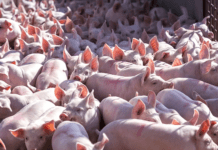“Living longer is important, but the ultimate goal is to live longer and live well into your later years. Through the science of ageing, it has become clearer that by making certain lifestyle choices you can slow down the effects of ageing.”
I visited a friend some time ago, and was impressed with his collection of souvenirs from different countries. He travels regularly to Kenya, South Africa, Ethiopia, Paris, London and other parts of the world for business, and acquires mementoes during the trips. A portion of his living room actually looks like a museum.
I thought of my own interest during travels. I don’t very much appreciate paintings and carvings and therefore do not spend money on them. Instead, I buy books as souvenirs. I like to remember places with books purchased there. And, usually, I indicate the locations and dates on the books.
In my library, I have some books that I bought during my recent travels. These include: “I Declare” by Joel Osteen, North Carolina, 6/10/12; “The 15 Invaluable Laws of Growth” by Brian Tracy, Chicago, 20/09/12; “Standing Tall” written by a colleague, Dr N. K. Ebube in Philadelphia, 20/09/13; and “Self Matters” by Dr Phil McCraw, Dubai, 23/07/14. My Holy Bible was dated 1/10/13, Orlando, Florida. This was a gift from my wife on my 73rd birthday.
Returning from Washington to Lagos via London on Sunday, 6 October,
2013, I bought “20 Years Younger” by Bob Greene at the Heathrow Airport. This book proved to be a good in- flight reading material.
Lessons Learnt
Usually, when I invest in a book, my primary objective is to improve my knowledge on that subject. Secondly, I try to apply the lessons I have learnt to myself. Thirdly, I share that knowledge with others.
“20 Years Younger” is an appealing title for a book. Everyone wants to look younger than their age. Incidentally, there are two ways to describe age. There is the chronological (calendar) age, which is determined by the date of birth. The other is the biological age, which reflects the rate at which we are getting older. Everyone’s desire is to reduce the biological age and live healthy long life.
Bob Greene, an exercise physiologist, believes strongly that exercise is the ultimate anti-ageing weapon. He made it clear that you can halt or even reverse the ageing process of your body through exercise.
Simple Strategy
Much of what we think of as ageing – wrinkles, weight gain, memory loss, lack of energy, certain types of illnesses – is not primarily attributable to the passage of time. Rather, it’s a direct result of sedentary living, poor diet, lack of sleep, insufficient (or nonexistent) skin care, too much stress, and even a defeatist attitude to life. Therefore, it stands to reason that if you reverse those habits – if you sufficiently exercise your body, eat longevity-promoting food, sleep soundly and adequately, protect and nourish your skin, and improve your outlook on the world – the signs of ageing will reverse themselves, too.
Living longer is important, but the ultimate goal is to live longer and live well into your later years. Through the science of ageing, it has become clearer that by making certain lifestyle choices you can slow down the effects of ageing.
Friendly Foes
The big question has been, “Why do we age and eventually die?” Several evolutionary theories have been propounded on this issue. But one major theory not based on evolution has to do with the cumulative effects of damage to the body. This is the free radical (oxidative stress) theory of ageing. Over the years, injury from simple wear and tear, sun damage, a poor diet, smoking, pollution, and even the body’s own metabolic processes, add up to promote ageing and eventual death.
Oxidative stress refers to the injury done to DNA, cells, and tissues in the body by free radicals. The free radicals are molecules with unpaired electrons that are produced when the body metabolises oxygen. They are also produced in our personal environment, e.g., through sunlight, smog, high altitude, exposure to X-ray, toxins in food and water, pollen, ozone, moulds, dust, and so on.
In their incomplete state, free radicals become thieves, trying to steal electrons from nearby molecules and wreaking havoc along the way. The body has the ability to absorb free radicals and repair the damage they do, but its defence system tends to weaken over time, leaving it vulnerable to disease.
We need free radicals to live, but they are also the bane of our existence. Free radicals damage can impair the immune system and result in various types of cellular damage. Such cellular damage is associated with many of our degenerative diseases like arthritis, some types of cancer, heart attacks, hardening of arteries, Parkinson’s disease, cataracts etc. Based on this theory, what do we do to fight the damaging effects of the free radicals?
Restraining Radicals
Free radicals are rendered harmless by antioxidants. An antioxidant is a substance that can donate an electron to a free radical without becoming dangerous itself. An antioxidant puts an end to the rampage of cellular and bodily destruction. Antioxidants can saturate our cells and tissues and protect against free radicals, if taken in sufficient amounts.
The body makes special antioxidant enzymes, but you can also get many antioxidants in foods (especially fruits and vegetables) and nutritional supplements.











